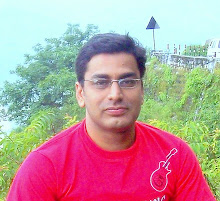A Necessary Victory
Wednesday, July 23, 2008
 UPA should build on momentum of winning floor test
UPA should build on momentum of winning floor test
Constitutionally the signing of international treaties is a cabinet matter. But the India-US civil nuclear deal generated enormous political heat, with the Left withdrawing support to the government on the issue. A robust debate in Parliament, followed by the holding of a trust vote — where the government won a convincing victory — was the fairest institutional way of resolving it. While the debates went well on Monday, yesterday’s parliamentary proceedings were marred when BJP MPs produced bundles of currency notes just before the trust vote was about to be held, alleging that those were bribes paid by an SP leader for abstaining from the vote. These are serious charges if proven. But the concerned MPs ought to have gone to the Speaker or the police, as a determination of their veracity is hardly likely to be made on the floor of Parliament. Although BSP chief Mayawati called for the resignation of the prime minister on moral grounds, the mode of presentation of the evidence made things still murkier. A high-level inquiry needs to be conducted into the allegations and action taken if the charges can be proved. But once the dust has settled, it’s also time to get on with the business of governance. There are pressing tasks ahead for the government. Tackling inflation has to be the highest priority. The country can’t afford to be rudderless at this time. There are signs of an economic slowdown now, coupled with a sharp rise in inflation rates. Fiscal deficits are going out of whack, leading international rating agency Fitch to revise India’s local currency outlook from stable to negative. Standard and Poor’s is considering lowering India’s rating to below investment grade. If that happens it would lower investor confidence in the economy and further dim India’s growth outlook. That’s at a time when the draft National Employment Policy of the government has projected that the Indian economy must grow at 12.3 per cent a year in order to eliminate joblessness by 2012. Now that the government has passed the floor test and is no longer dependent on the Left for support, it’s imperative that it makes up for time lost and presses ahead with longdelayed reforms. It can open up insurance and retail, pass the pension reforms Bill, list public sector units for disinvestment. Disinvestment of PSUs as well as important Bills in the area of pension and banking reform had been held up because of opposition by the Left. Labour and company bankruptcy laws can also be looked at. Reform measures in these and other areas can give the economy the bounce it sorely needs.
 in also defied his party whip. Another alliance constituent, NPF, could do little to prevent its lone MP Wangyuh Konyak from supporting the trust vote. The Akali Dal also was unable to prevent Sukhdev Singh Libra from abstaining. TDP saw one MP, M Jagannath voting for the government and another, D K Audikesavulu, abstaining. UPA had already sewn up TRS’s A Narendra who voted for it despite his party whip. That was true also of two MDMK members, L Ganesan and Gingee Ramachandran, as well as NLP’s Baleshwar Yadav.
in also defied his party whip. Another alliance constituent, NPF, could do little to prevent its lone MP Wangyuh Konyak from supporting the trust vote. The Akali Dal also was unable to prevent Sukhdev Singh Libra from abstaining. TDP saw one MP, M Jagannath voting for the government and another, D K Audikesavulu, abstaining. UPA had already sewn up TRS’s A Narendra who voted for it despite his party whip. That was true also of two MDMK members, L Ganesan and Gingee Ramachandran, as well as NLP’s Baleshwar Yadav. 


0 comments:
Post a Comment